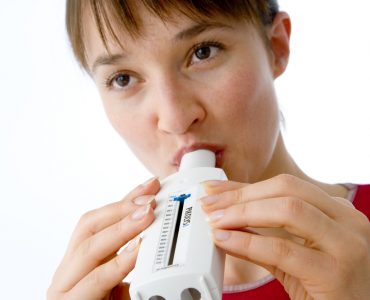Diagnosis
The GP can usually diagnose measles from the visible symptoms like the red-brown spotty skin rash and small spots inside the mouth. The diagnosis can be confirmed by a blood or saliva test for presence of rubeola virus. The infected child may be asked to not attend school till 5 days after the rash appears.
Complications
Complications are more likely to develop in children under age of 5years, especially those with weak immune systems, who have contracted leukaemia or AIDs or those who are undernourished. Complications are also more likely in adults over 20 years of age.
Complications which occur commonly are:
Diarrhoea
Inflammation of vocal box or laryngitis
Conjunctivitis infection of the eye
Vomiting
Inflammation in the inner ear called otitis media can cause pain in the ear.
Febrile convulsions or fits can be caused by fever, however, these are not dangerous.
Complications seen less commonly in measles are:
Hepatitis (infection of liver)
Meningitis
Lung infection or pneumonia – causing chest pain, fast and difficult breathing, worsening of condition.
Low platelet count or thrombocytopenia, which affects blood clotting.
Inflammation of the brain or encephalitis causing headache, vomiting and drowsiness
The eye nerves and muscles might be affected causing squint.
Infection of the respiratory airways causing bronchitis and croup causing hacking or barking cough.
Some rare complications are:
Infection of the optic nerve, called optic neuritis, which can lead to blindness
Damage to heart and nervous system
Subacute sclerosing panencephalitis is a fatal brain malady which can occur years after getting measles, although it rarely occurs in one of 100,000 cases.
Measles and pregnancy
If a woman plans to conceive and has not contracted measles yet, MMR vaccine is a must before getting pregnant. In case, one does get measles during pregnancy, it can cause miscarriage, premature labor, baby with low birth weight and lead to fatalities in the unborn child. The MMR vaccine cannot be administered during pregnancy.
Prevention
Isolation of or from people having measles.
MMR vaccine – is administered when child is around 13 months and a booster dose given between 3-5 years of age to rule out any risk. Without immunization, measles has the risk of spreading and causing epidemic.
If child under 6 months is exposed to measles, the child will usually be protected by mother’s antibodies passed on to him / her, provided the mother has had measles in the past. However, if the mother has not had measles, the child would need to be given an injection of human normal immunoglobulin (HNIG) which is a concentration of antibodies to give immediate and short term protection against measles.
Children between 6-13 months can be normally given MMR to protect them. In this case they will need two booster doses as a part of the childhood immunization program.
Measles-II

Let us know if you liked the post. That’s the only way we can improve.












